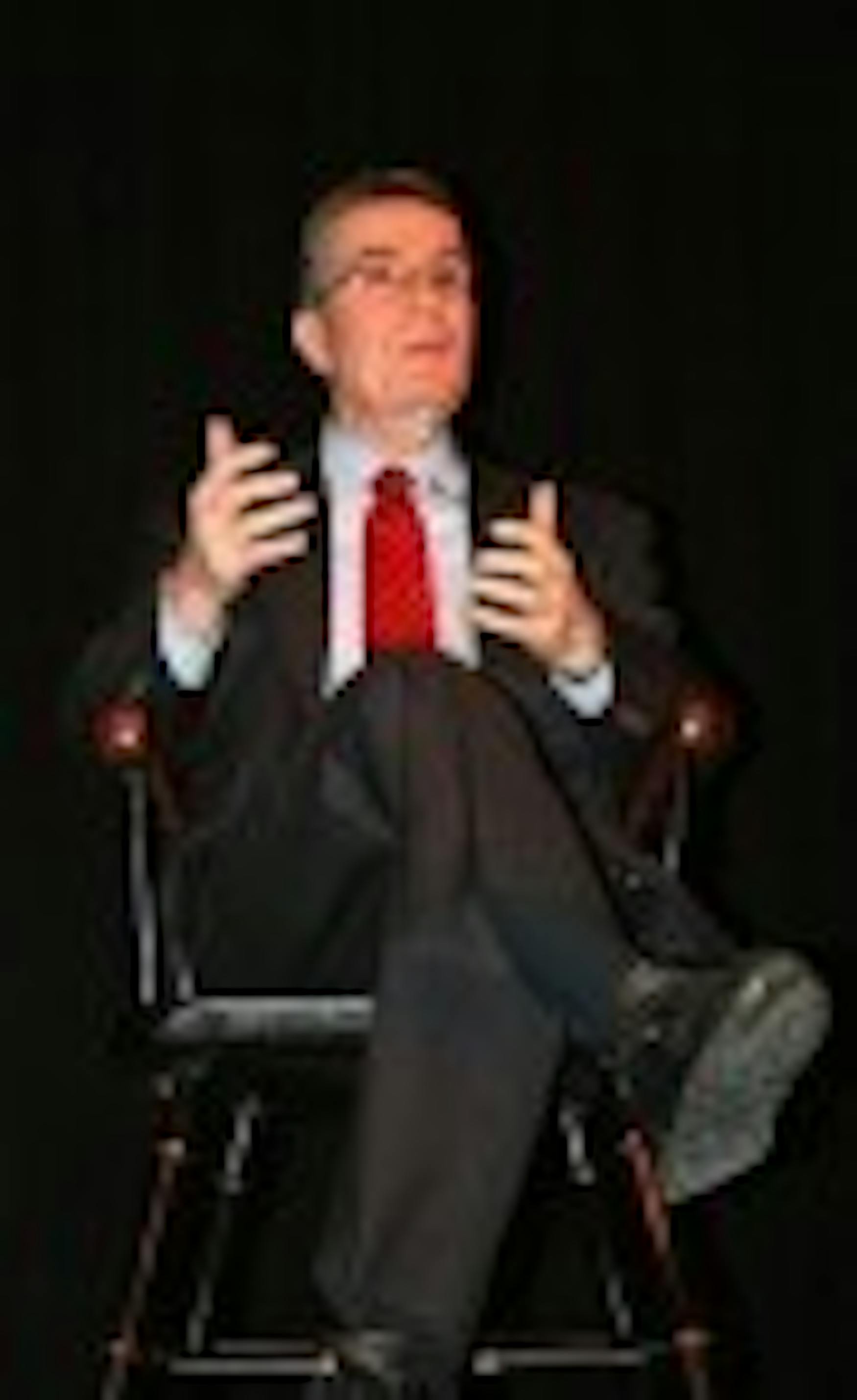The wisdom and wit of Ted Sorenson
Relaying memories of writing JFK's legendary speeches
A cameraman took a step closer so that his video camera was hovering a foot from Ted Sorenson's face. A second reporter eagerly held out a microphone and asked what the process of crafting a speech was like. Without missing a beat, Sorenson replied, "It's not unlike crafting questions to ask a reluctant guest." Last Tuesday, Sorenson, who served as former president John F. Kennedy's speechwriter and closest adviser, delivered a speech in the Carl J. Shapiro Theater. The event, "From 'Ask Not.' to 'Yes We Can,'" was sponsored by the International Center for Ethics, Justice and Public Life, where Sorenson serves as chair of the advisory board.
Apart from his sharp wit, Sorenson, now 80 years old, shared his political insight from his experience working with President John F. Kennedy. Not one spot in the 249-seat theater was empty, and students lined the walls to hear Sorenson talk.
Despite being Kennedy's speechwriter, Sorenson said that people shouldn't concern themselves with who wrote speeches, but rather the ideas that the speeches conveyed. "A much more important question is not who penned particular words as a wordsmith, but why Kennedy's values, principles, and policies that were stressed throughout that speech have been largely forgotten," he said.
In addition, he insisted that he was not the author of Kennedy's speeches, but only the person who expressed Kennedy's thoughts in verbal form. "The author is the man who stood behind it," he said. "It was a speech that received a good deal of praise and [Kennedy] deserves that praise."
Definitive about what makes a good inaugural address, Sorenson reminded the audience that the speech is "not a time for personality presentation" or listing specific initiatives, but should uphold "lofty principles."
Sorenson spoke about the parallels between President-elect Obama and Kennedy and the importance of a great inaugural address. He started with a simple parallel between the two: Both presidents are youthful idealists with superb oratory skills and with the ability to appeal to the youngest generation of voters, he said.
Sorenson, who supported Obama early on, told the audience that he "supported him not only because he seemed most likely to win . but because he reminded me of JFK."
He stressed the importance of having an idealist as president. Recalling Kennedy's idealism, he recited part of the famous inaugural speech he helped to draft: "Together let us explore the stars, conquer the deserts, eradicate disease, tap the oceans' depths."
Sorenson also noted that Obama and Kennedy came to office at similarly perilous time periods. "It was a dangerous time [when Kennedy took office]-just as in many ways Obama is taking office at a time [of] great economic difficulty but [also of] a great danger to the West and to freedom," he said.
Idealism, Sorenson said, is especially important to Americans now, after George Bush's eight years of presidency. "I think Obama's election was really made possible by G.W. Bush," Sorenson said. "[Obama's election] could only have happened because this country was led into the depths of despair by its predecessor."
He presented several video clips of Kennedy's, Ronald Reagan's and Bill Clinton's inaugural addresses and pointed out the flaws in each one. Reagan's, he said, focused too much on business. He criticized Clinton's for being "derivative" and borrowing too much from past speeches.
"I think I'm objective enough to say that Kennedy's was by far the best," he said, only half joking. "Kennedy's focused on international matters and broader principles." Sorenson said he hopes Obama will do as well in his inaugural speech.
"This is the speech," he said, "that will define [Obama] and his presidency for the rest of the world."
Some audience members were highly impressed with Sorenson's speech. Said Gen Ed Now co-president Daniel Gillman '10, "I think Mr. Sorenson gave incredible insight from his experiences . I was inspired by his enthusiasm for Obama's presidency.



Please note All comments are eligible for publication in The Justice.